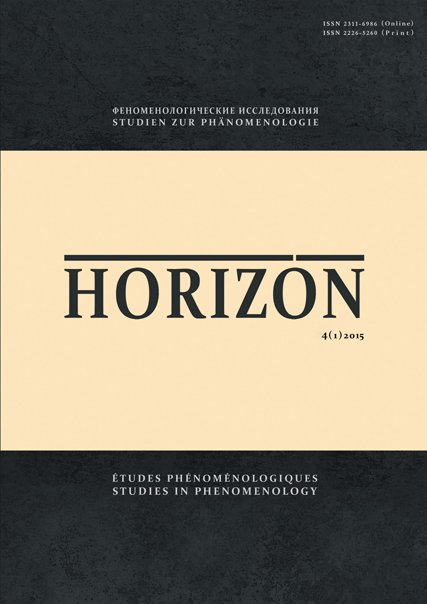MERLEAU-PONTY ENTRE MACHIAVEL ET MARX:
VERS UNE NOUVELLE ANALOGIE DU CORPS POLITIQUE
MERLEAU-PONTY BETWEEN MACHIAVELLI AND MARX:
NEW ANALOGY OF POLITICAL BODY
Author(s): Anne GléonecSubject(s): Phenomenology, Hermeneutics
Published by: Издательство Санкт-Петербургского государственного университета
Keywords: body; flesh; Gestalt; history; institution; Machiavelli; Marx; Merleau-Ponty
Summary/Abstract: This article is the second part of our phenomenological study on the analogy between the body andthe political body. Its aim is to confront the previous analysis of Claude Lefort’s critique of the ontologiesof the Political Body with the Merleau-Pontian thought of history, institution, and corporeality.Indeed, this Merleau-Pontian thought, specifically developed in the courses of the 1950’s, allows fora renewal of the analogy itself, via another reading of the Lefortian major inheritance: Machiavelli andMarx. By parallelly following Merleau-Ponty’s evolutive reading of these two authors, and the essentialchanges in his phenomenology of perception, this article thus proposes to disclose the main entry pointsinto a Merleau-Pontian reform of the analogy; an analogy that has to be thought against the ambiguityof the flesh that Claude Lefort inherits precisely from Merleau-Ponty. By discussing this ambiguity that«The Visible and the Invisible» is often charged with via a reading of Merleau-Ponty’s courses at theCollège de France — specifically Institution, Passivity, and Nature — this article intends to disclosethe political meaning of the concept of intercorporeity, with which the human body will no longer beunderstood as «one’s own body», but rather interpreted in a radically a-subjective way. Moreover, thisvery concept of intercorporeity specifically opens a novel way to understand the meaning of the centralconcept of the analogy of the political body itself, namely the concept of incorporation. Indeed, by followingMerleau-Ponty’s lesser known thought of the 1950’s, one can think incorporation against theclassical schema of fusion, that is to say, on the opposite, as an encounter of dispossessions, and thusas a path into a new analogy.
Journal: Horizon. Феноменологические исследования
- Issue Year: 4/2015
- Issue No: 1
- Page Range: 70-96
- Page Count: 27
- Language: French

